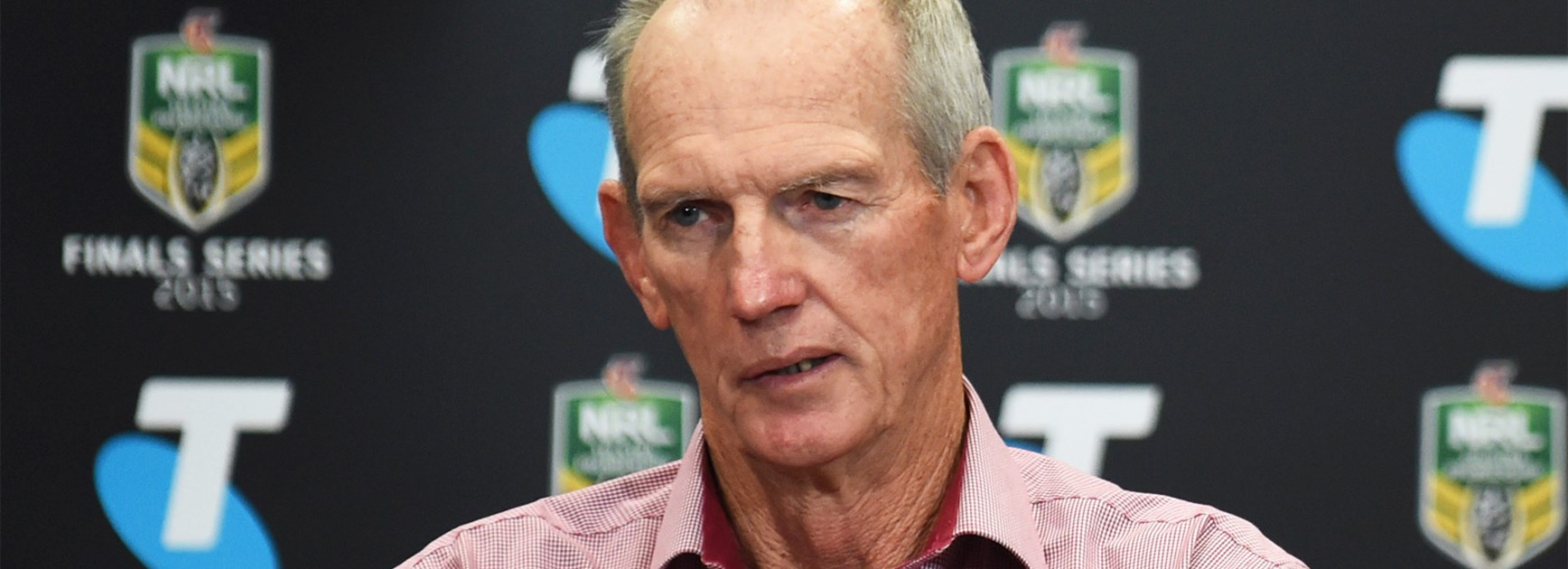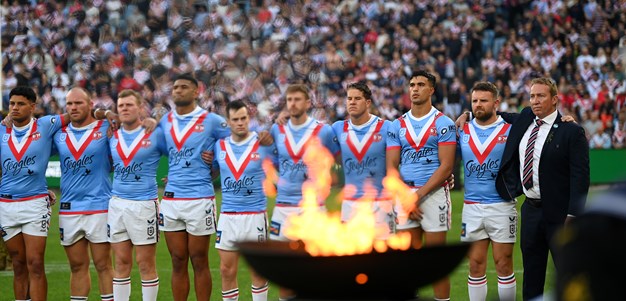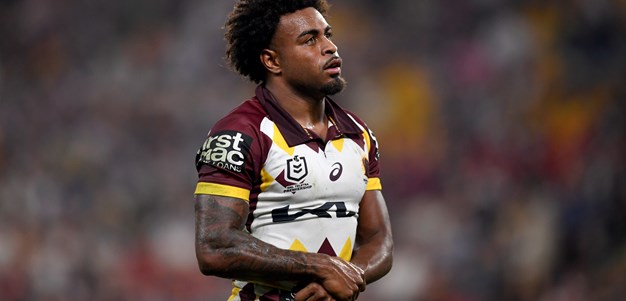
Brisbane Broncos coach Wayne Bennett has applauded the NRL's move toward scrapping golden point in finals football, with the competition's rules committee set to host discussions in favour of a new approach to extra time in the play-offs.
There is talk the NRL will look to implement an NFL-style system. Under this proposal, a team would receive a full set of six after conceding a field goal in extra time – a right of reply.
But, in what is essentially golden try, if a try is scored at any time in extra time then the game is immediately finished and the team that scored the try would be victorious.
Bennett knows all too well about the pain of golden point, with Brisbane's infamous one-point loss in the 2015 decider sparking debate in the rugby league community.
Broncos halfback Ben Hunt knocked on off the kick-off in golden point, all but ending his team's chances of winning their seventh premiership.
North Queensland Cowboys halfback Johnathan Thurston kicked a field goal in the next set and the game was won off virtually one set of six.
The proposal to change this process will be discussed at a coaches meeting next month and Bennett said the possible rule changes are a step in the right direction.
"I wouldn't say they are getting rid of golden point. They are just readdressing it like they said they'd do at the end of last season," Bennett said.
"It looks like in the last 48 hours something has happened. The AFL has got it pretty right with what they've done and we need to address that issue.
"One point and one set can't be responsible for a team losing anywhere in the play-offs or the grand final. It just shouldn't happen."
Bennett's negative stance on golden point has been unwavering since the competition introduced the rule in 2003.
The rule itself will stay in the game, with it still to be used to decide regular season fixtures that are level after 80 minutes.
"Regular season football is a whole lot different to the play-offs. There is a huge amount at stake in finals football. Lots of the time it may be a team's last game – it might be all over. I just want it to be as fair as it possibly can to both teams," he said.
"It was probably the grand final in 1989 when they last had extra time. It was a great game of football and a great spectacle.
"Extra time is played in a lot of codes across the world now. None of them are reliant on one moment where a team scores a point and that's the end of the game. It's always five minutes, 10 minutes, or 20 minutes before they need to get to a shootout situation.
"In our game we need to play an extra amount of time, whatever that is, and if the scoreboard is still the same then I'd be happy to go to a golden point situation. The game needs to be finished on that night, at that moment, but it needs to be fair to both clubs involved."



